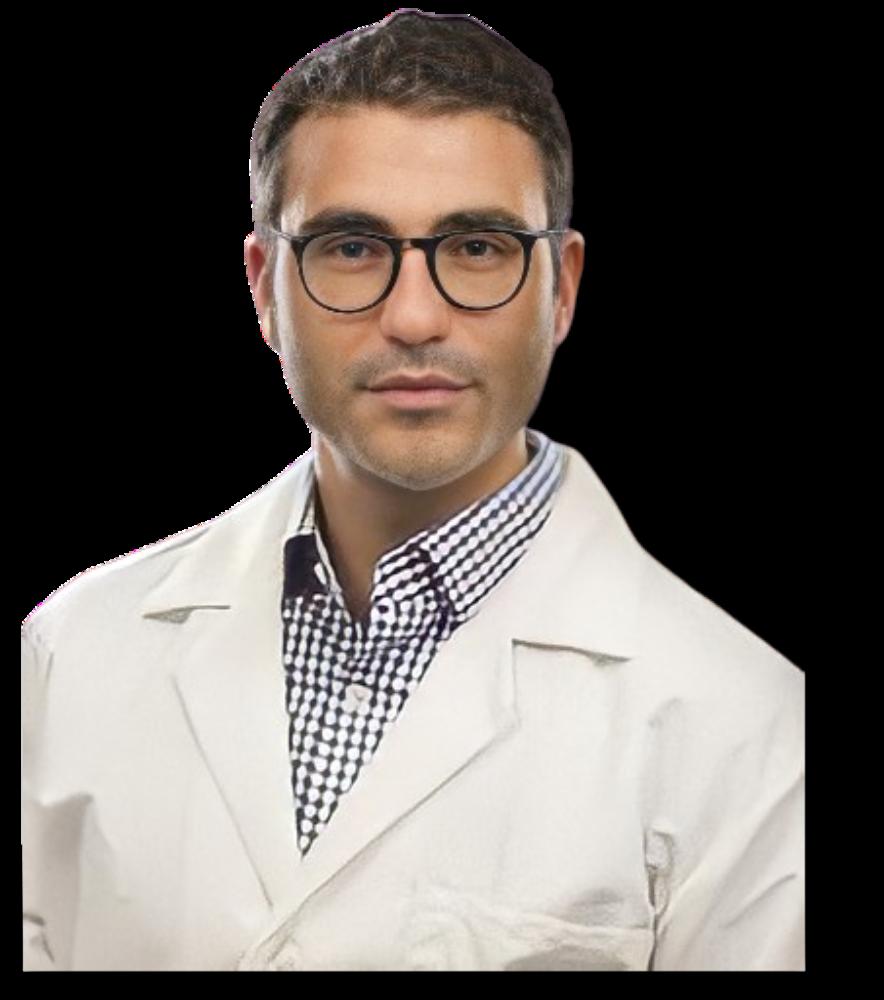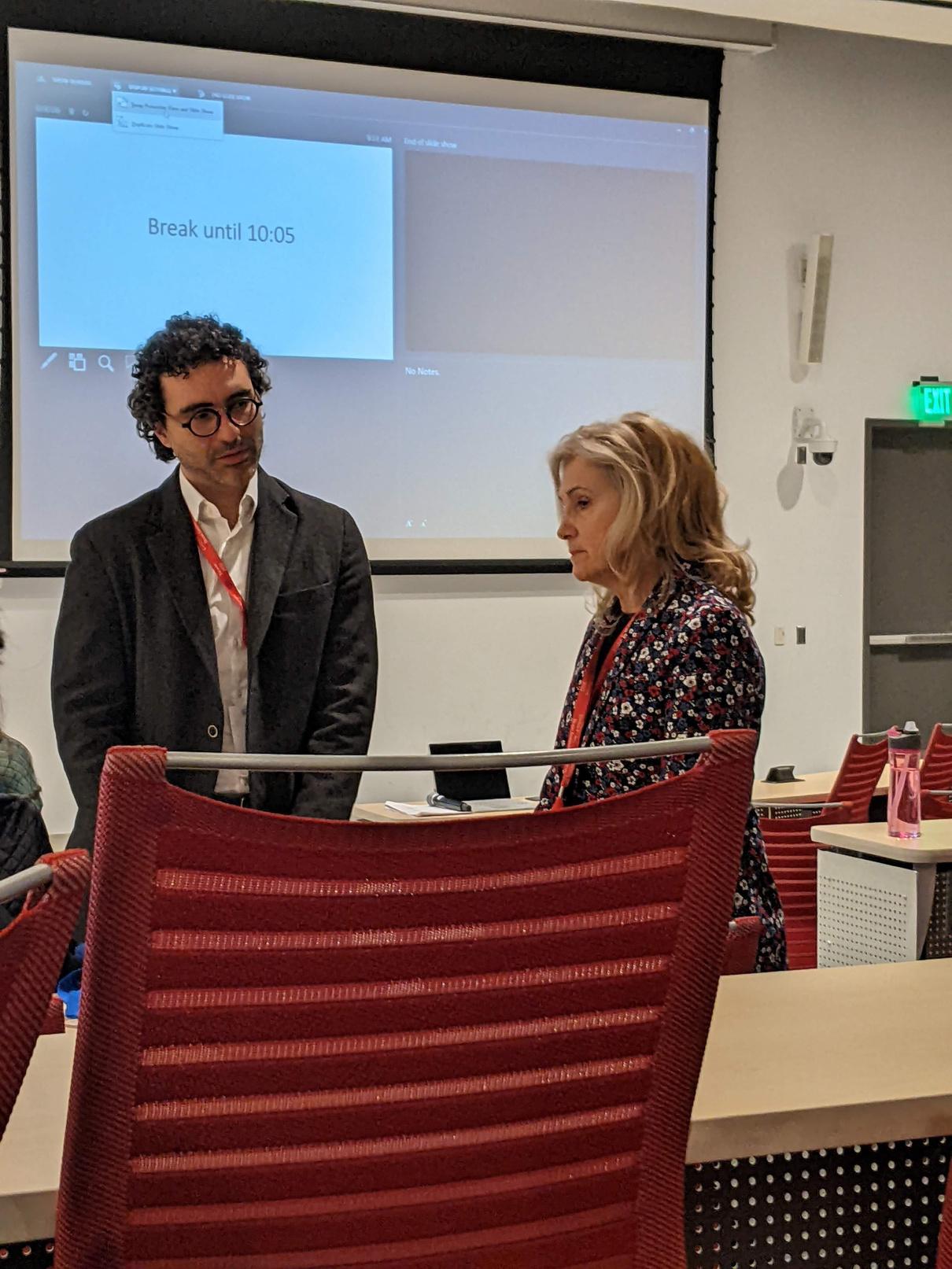
9 minute read
E V E L Y N F . M C K N I G H T
In 2022, Christian Agudelo, MD, has continued his scholarship He has been meeting regularly with his mentoring team, Drs. Rundek, Sun, and Ramos, to track and evaluate the progress according to the goals of his Individual Development Plan.
This year, Dr Agudelo published 2 manuscripts, one in the the Journal of Applied Sciences (as first author) and another in Journal of Alzheimer’s Disease (as corresponding author). He also submitted a third manuscript for publication to Stroke (as first author), which is pending peer-review. Dr. Agudelo was also co-author on 4 abstracts accepted for presentation, 2 at the Annual Meeting of the Associated Professional Sleep Societies (Sleep 2022, Charlotte, NC) and 2 at the Alzheimer's Association International Conference (AAIC 2022, San Diego, CA). References for these are below.

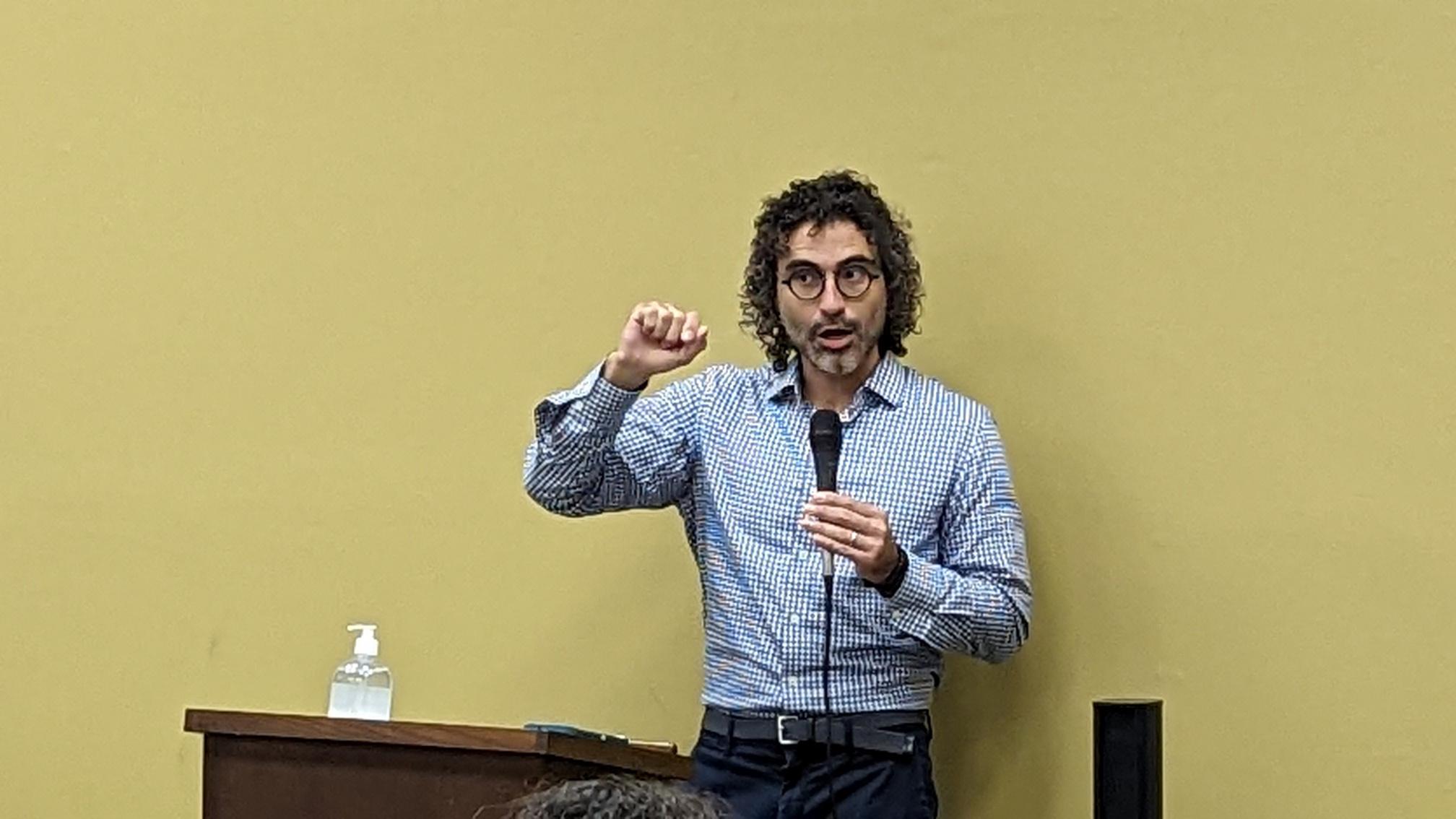
Dr Agudelo was very active in grant submissions this year He was just awarded an NIH supplement (details presented below) and invited by the NIH to submit an R03 to extend this line of research.
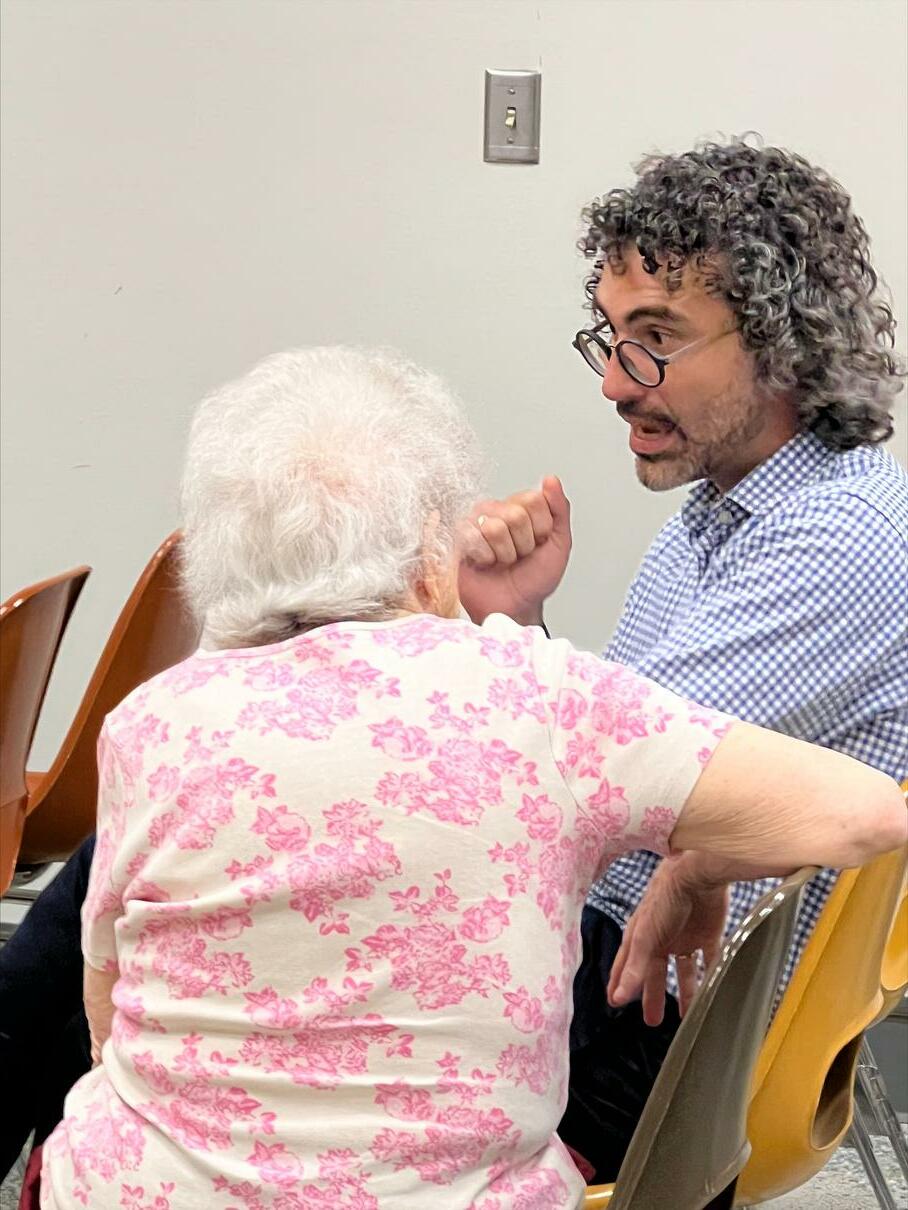
1.
P U B L I S H E D R E F E R E E D M A N U S C R I P T S
2.
Agudelo C, Ramos AR, Sun X, Kaur S, Del Papa DF, Kather JM, Wallace DM. Alzheimer’s Disease Neuroimaging Initiative (ADNI). Sleep Disordered Breathing Risk with Comorbid Insomnia is Associated with Mild Cognitive Impairment Applied Sciences 2022 February 25; 12(5):2414
Rundek T, Del Brutto VJ, Goryawala M, Dong C, Agudelo C* , Saporta AS, Merritt S, Camargo C, Ariko T, Loewenstein DA, Duara R, Haq I. Associations Between Vascular Risk Factors and Perivascular Spaces in Adults with Intact Cognition, Mild Cognitive Impairment, and Dementia. J Alzheimers Dis. 2022 September 13; 89(2):437-448 PubMed ID: 35871327 *Corresponding author
M A N U S C R I P T S U N D E R R E V I E W
1.
Agudelo C, Ramos AR, Gardener H, Cheung K, Elkind MSV, Sacco RL, Rundek T. Sleep duration is associated with subclinical carotid plaque burden Stroke Submitted for peer review on 11/29/2022
A C C E P T E D R E F E R E E D A B S T
1.
2.
C
S A N D P O S T E R S
Gonzalez, KA; Tarraf, W; Stickel, AM; Kaur, S; Agudelo, C; DeCarli, C; González, HM; Ramos, AR; Sleep duration and brain MRI measures: preliminary results from SOL-INCA MRI study. Annual Meeting of the Associated Professional Sleep Societies; Charlotte, NC; June 2022 (Refereed abstract)
Ramos, A; Gonzalez, K; Tarraf, W; Redline, S; Patel, S; Stickel, A; Agudelo, C; Kaur, S; Testai, F; Lipton, R; Isasi, C; Sotres-Alvarez, D; Gallo, L; DeCarli, C; Gonzalez, H; Sleep Disordered Breathing and MRI Makers of Brain Aging in the Hispanic Community Health Study/Study of Latinos. Annual Meeting of the Associated Professional Sleep Societies; Charlotte, NC; June 2022 (Refereed abstract)
3.
Haq, IU; Del Brutto, V; Goryawala, M; Dias Saporta, AS; Merritt, SS; Camargo, C; Agudelo, C; Ariko, T; Dong, C; Loewenstein, D; Duara, R; Rundek, T; Association of enlarged perivascular spaces (ePVS) and MRI markers of small vessel disease (SVD) and neurodegeneration in the Florida Vascular Imaging Phenotypes (FL-VIP) Study of AD Risk. Alzheimer's Association International Conference; San Diego, CA; August 2022 (Refereed abstract)
4.
Rundek, T; Del Brutto, V; Goryawala, M; Dias Saporta, AS; Merritt, SS; Camargo, C; Agudelo, C; Ariko, T; Dong, C; Loewenstein, D; Duara, R; Haq, IU; Determinants of enlarged perivascular spaces (ePVS) on MRI: The Florida Vascular Imaging Phenotypes (FL-VIP) Study of AD risk. Alzheimer's Association International Conference; San Diego, CA; August 2022 (Refereed abstract)
D R . A G U D E L O ’ S A C H I E V E M E N T S , A W A R D S A N D R E C O G N I T I O N S I N C L U D E :
1.
He was awarded a Diversity Supplement to his mentor’s (Dr. Alberto Ramos) NIH R01 grant, Sleep in Neurocognitive Aging and Alzheimer's Research (SANAR, NIA R01 AG067568) Upon the release of funds, this award will support 75% of Dr. Agudelo’s effort toward research for two years and provide funds for travel to conferences.
2. 3. 4.
He submitted an application for a renewal of his current NIH Loan Repayment Program award This award provides $50,000 per year to pay for his eligible federal undergraduate and medical school debt
He submitted an invited letter of intent for an R03-type award for the Charleston Conference on Alzheimer’s Disease in September 2022.
He was selected and attended the 2022 Programs to Increase Diversity Among Individuals Engaged in Health Related Researchs (PRIDE) Dr Agudelo was specifically selected to attend the Behavioral Medicine and Sleep Disorders Training Institute of PRIDE, which was a 2-week inperson career development workshop hosted by the Univeristy of Miami Milller School of Medicine in 2022.
5. 6. 7. 8. 9. 10. 11. 12. 13. 14.
He mentored a neurology resident at the University of Miami, Dr Dylan F Del Papa, who won first prize for a poster presentation at the 2022 University of Miami Department of Neurology Resident Research Day. (Sleep Disordered Breathing Risk with Comorbid Insomnia is Associated with Mild Cognitive Impairment)
He attended and presented at the data blitz of the 13th Annual McKnight InterInstitutional Meeting in March 2022 in Tucson, AZ
He joined the Editorial Board of Frontiers in Neurology in June 2022.
He joined the Editorial Board of the Journal of Alzheimer’s Dementia in July 2022
He completed a manuscript review for the journal Frontiers in Psychiatry in August 2022.
He completed a manuscript review for the journal Sleep Advances in August 2022
He completed a manuscript review for the journal Frontiers in Sleep in September 2022.
He was interviewed by CNN en Español in April 2022, discussing daylight saving time, sleep apnea and brain health
He was interviewed by CNN en Español in November 2022, discussing standard time and sleep apnea, and brain health.
As part of the McKnight Community Education Program, he presented in the Miami-Dade Public Library lecture series, Maintaining A Healthy Aging Brain. He discussed How to Sleep to Maintain Brain Health on July 12, 2022.

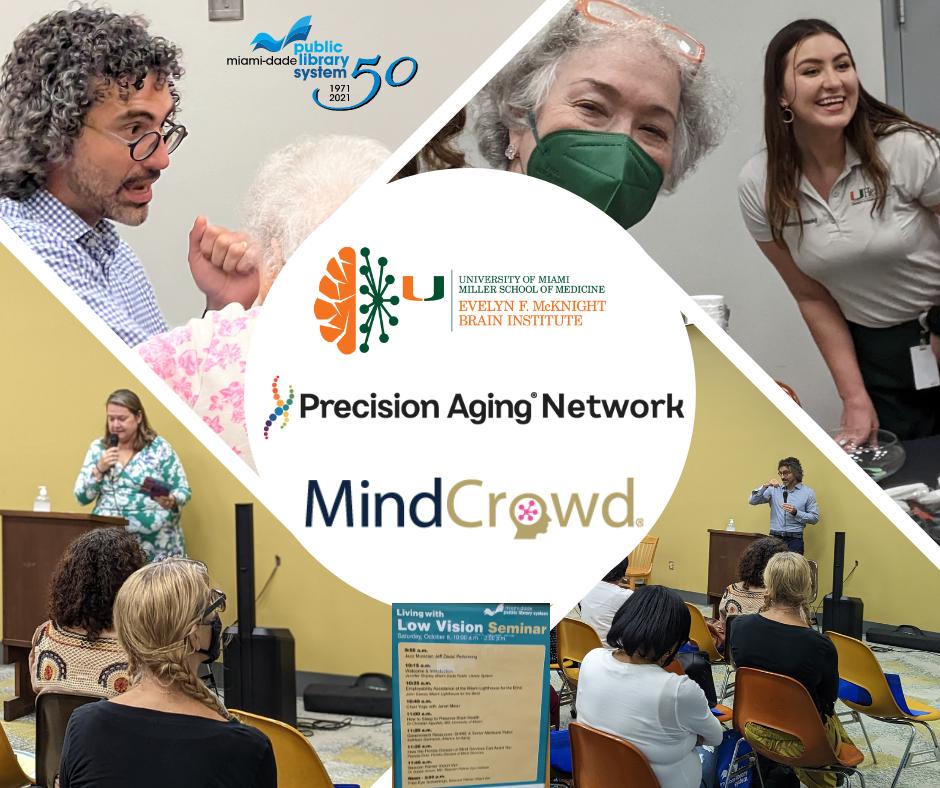
As part of the McKnight Community Education Program, he presented in the Miami-Dade Plublic Library lecture series, Living with Low Vision. He discussed How to Sleep to Maintain Brain Health on October 8, 2022.
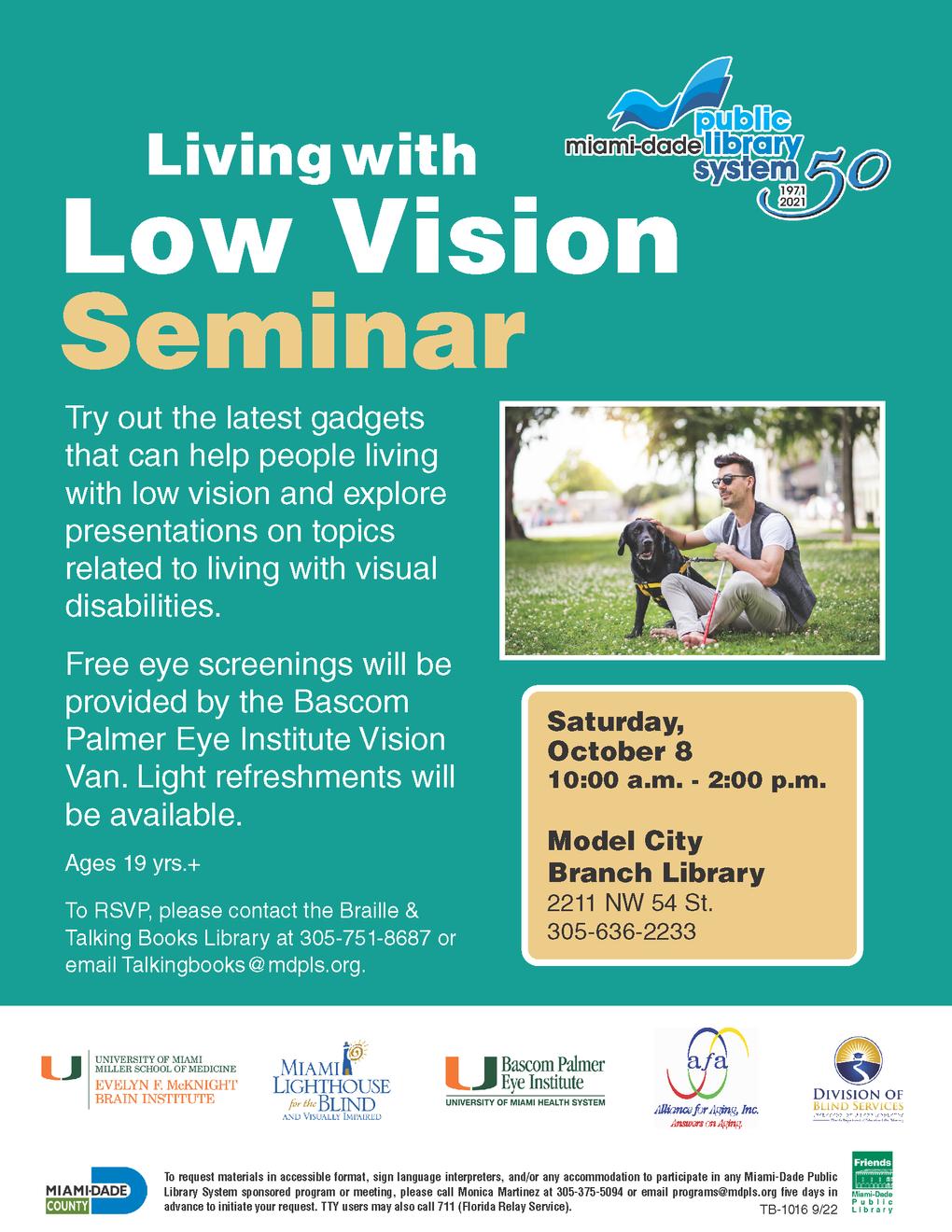
Dr Agudelo’s program of research has an overarching theme to identify modifiable sleep-related biomarkers of cognitive aging. Ultimately, his goal is to modify sleep to ameliorate cognitive decline. By leveraging excellent mentorship, ongoing research within the University of Miami McKnight Brain Institute, his affiliation with the Hispanic Community Health Study/Study of Latinos, and access to Alzheimer’s Disease Neuroimaging Initiative (ADNI) data, Dr Agudelo developed three projects, of which one is completed As the Evelyn F McKnight Neurocognitive Scholar, Dr Agudelo has obtained the training and mentorship needed to complete Project 1, obtain NIH funding for Projects 2, translate project 3 into an integral part of his upcoming NIH K23 award application (Mentored Patient-Oriented Research Career Development Awards), and develop project 4 into an upcoming NIA R03 award application (Grants for Early Medical/Surgical Specialists' Transition to Aging Research)
Project 1: The association between co-morbid insomnia and sleep disordered breathing and mild cognitive impairment in the ADNI study.
Disrupted sleep has been associated with cognitive decline Few studies have evaluated associations between sleep disordered breathing (SDB) with comorbid insomnia and mild cognitive impairment (MCI). Using Alzheimer’s Disease Neuroimaging Initiative data, he evaluated cross-sectional associations between SDB with insomnia status and MCI. He included ADNI participants with normal cognition or MCI. Insomnia was defined by self-report. SDB risk was assessed by modified STOP-BANG He created logistic regression models to evaluate associations between four sleep disorder subgroups (low risk for SDB alone, low risk for SDB with insomnia, high risk for SDB alone, and high risk for SDB with insomnia) and MCI. Models adjusted for age, sex, BMI, APOE4 genotype, race, ethnicity, education, marital status, hypertension, cardiovascular disease, stroke, alcohol abuse, and smoking. The sample (n=1,391) had a mean age of 73.5±7.0 years 44 9% were female 72 0% were at low risk for SDB alone, 13 8% at low risk for SDB with insomnia, 10 1% at high risk for SDB alone, and 4 1% at high risk for SDB with insomnia. Only high risk for SDB with comorbid insomnia was associated with higher odds of MCI (OR 3.22, 95% CI 1.57-6.60). These findings inform the approach to current and future projects. In studies examining insomnia, Dr. Agudelo will adjust for sleep apnea.
Project 2: Obstructive sleep apnea may be a modifiable risk factor for cognitive disease mediated by the loss of gray matter microstructure integrity.
Project 2 is the topic of a recently awarded 2-year Diversity Supplement to Dr. Alberto Ramos’ existing R01 grant, SANAR (R01 AG067568). SANAR is determining the relationship between obstructive sleep apnea (OSA) and vascular determinants of cognitive decline among US Hispanic/Latino adults, who have >2-fold risk of dementia and early cognitive decline compared to non-Hispanic white adults. Trials of disease modifying therapies for cognitive disease have failed because they occur too late in the pathologic process. A critical gap in the development of effective therapy is the absence of (1) reliable preclinical biomarkers of cognitive disease associated with (2) modifiable risk factors of cognitive pathology To bridge this critical gap as a Supplement to SANAR, Dr Agudelo proposes that (1) gray matter (GM) microstructure integrity is a biomarker of preclinical cognitive decline, and (2) OSA is a modifiable risk factor for cognitive disease mediated by the loss of GM microstructure integrity. The primary aims of this project are (1) determine if prior and persistent exposures to OSA and OSA-related hypoxemic burden are associated with lower hippocampal GM microstructure integrity; (2a) determine if hippocampal GM microstructure integrity is associated with average 12-year cognitive change among participants with and without OSA; (2b) determine if hippocampal GM microstructure integrity mediates associations between OSA and 12-year average cognitive change; and (3) determine the independent and interactive association of non-dipping blood pressure and OSA with hippocampal GM microstructure integrity This study will use data from the multi-center community-based Hispanic Community Health Study/Study of Latinos, its completed ancillary studies (SOL-INCA, SOL-INCA MRI, Sueño), and the ongoing ancillary study (SANAR). Completed studies have acquired baseline self-reported sleep data, baseline and repeat cognitive evaluations 7 and 12 years after baseline, repeat portable sleep apnea tests 12 years after baseline, and MRI among 1,000 predominantly middled-aged and older participants with and without OSA and without cognitive disease MRI protocols included DTI, which measures GM microstructure integrity. SANAR is obtaining 24-hour ambulatory blood pressure monitoring (to measure non-dipping blood pressure, a feature of OSA) and repeat home sleep apnea tests (10 years later). This Diversity Supplement will fund 75% of his effort for two years.
Project 3: Mesial temporal lobe gray matter microstructure integrity as a marker of accelerated cognitive aging associated with sleep continuity and slow wave activity.
Project 3 will leverage data from Project 2 (the Diversity Supplement) and use data from the Hispanic Community Health Study/Study of Latinos Project 3 will be the basis of a mentored career development award application in 2023 (institutional KL2 or NIH K23). Dr. Agudelo proposes that (1) gray matter (GM) microstructure integrity is a marker of subclinical cognitive decline, (2) sleep continuity and slow wave activity during sleep are associated with lower GM microstructure integrity, and (3) lower GM microstructure integrity mediate a relationship between sleep and accelerated cognitive aging He hypothesizes that lower sleep continuity and lower slow wave activity during sleep are associated with lower GM microstructure integrity. Lower gray matter microstructure integrity, in turn, will mediate a relationship between sleep and accelerated cognitive aging. In addition to the measures used in Project 2, Project 3 will also use the sleep actigraphy data. This project will also propose the novel use of portable dry-lead electroencephalography (EEG) to measure sleep architecture, and specifically, slow-wave activity during sleep This project, as part of a 5-year career development award, will be the final stepping stone toward becoming an independent clinical scientist. He expects to submit this project as a mentored career development award application in the fourth quarter of 2023.
Project 4: Nap phenotypes and their association with cognition.
Project 4 will similarly leverage data from the Hispanic Community Health Study/Study of Latinos and serve as the basis for a 2-year NIA R03 award application (Grants for Early Medical/Surgical Specialists' Transition to Aging Research) Napping is an understudied phenomenon, and napping behaviors vary widely among different cultures and societies Furthermore, there are significant cultural and societal variations in napping behaviors Dr Agudelo proposes using the actigraphic data available for almost 2,000 participants of the Hispanic Community Health Study to determine how people nap. Specifically, using datadriven latent class analysis, phenotypes of napping can be developed that define different ways people nap regarding nap frequency, duration, timing, and selfreported daytime sleepiness He then will examine if any nap phenotypes are associated with accelerated cognitive decline or protective against brain aging
This project will also leverage the portable dry-lead EEG proposed in Project 3. Project 4 will pilot the use of dry-lead EEG worn over multiple 24-hour periods, to capture the sleep architecture of napping in the real-world environment. This pilot will serve as proof of methodological concept and provide pilot data for a subsequent R01 grant application that incorporates portable EEG-derived sleep architecture into the study of napping, nap phenotypes, and cognitive aging
We are grateful for the funding to support Dr. Agudelo. As the Evelyn F. McKnight Neurocognitive Scholar, he has achieved the milestones needed to develop into an independent clinical scientist As of January 1st, 2023, he will be completely funded by his NIH Diversity Supplement, which will support his ongoing development and provide data needed for a competitive NIH K23 career development award application and beyond. He will join the Department of Neurology Faculty in June of 2023.
